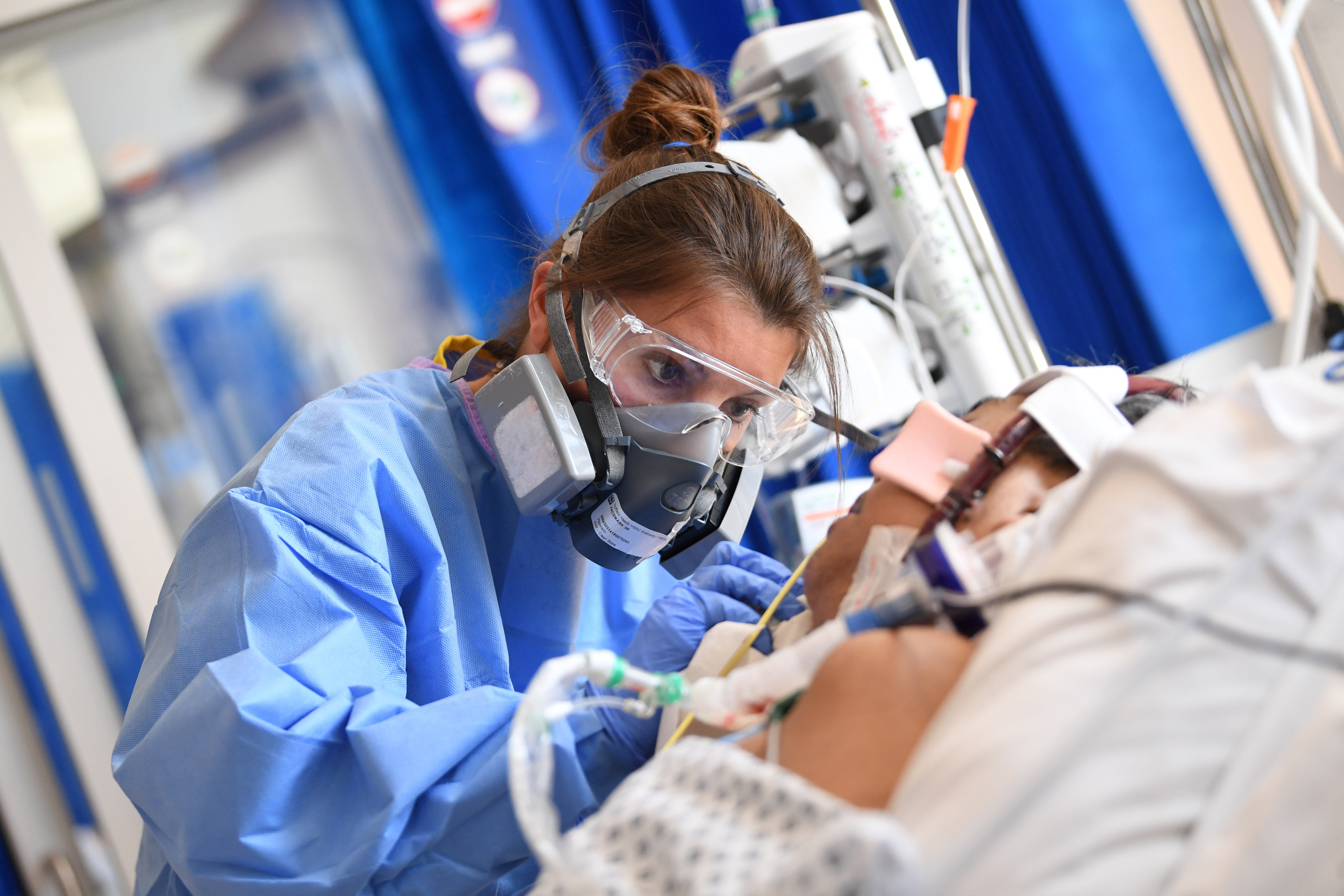Number of Covid patients in English hospitals up 20 per cent in a week
The government cannot pretend the threat of Covid has gone, NHS leaders warn

The number of Covid patients in hospitals across England increased by 20 per cent in the last seven days, new NHS data shows.
According to figures published on Tuesday, the number of patients with Covid in English hospitals is at its highest since 31 January.
NHS leaders have warned that Covid-19 is currently accounting for 30 per cent of staff absences, and that the government “cannot put its fingers in its ears and pretend that the threat has gone away”.
However, the latest NHS figures also showed that daily admissions as of 20 March stood at 1,793, slightly down on the previous day, when 1,813 patients were admitted with Covid.
Overall, the rate of Covid-19 admissions for England is still on the increase, but is increasing at a slower rate.
The number of patients with Covid in intensive care beds across England has increased slightly, at 296 patients as of 22 March, which is the highest number since 23 February.
Across the UK, infections increased by 20 per cent to 592,459 on Tuesday, while the number of patients admitted to hospitals nationwide increased by 21 per cent. This is a slower rate of increase than that seen in the previous week.
The number of coronavirus patients in Scotland’s hospitals has reached a record high for a second consecutive day, with the latest figures showing 2,221 in need of hospital care. That is an increase of 93 from the total of 2,128 that was reported on Monday, with 37 new deaths also being reported.
In Wales, the government is thinking about extending some of its Covid restrictions, minister for health Baroness Morgan has suggested.
She warned at a briefing on Tuesday that there had been a “marked increase” in Covid-19 numbers, driven by the new BA.2 Omicron variant.
The news comes as hospitals in England continue to report pressure on their beds. A hospital in Dorset warned on Tuesday that it was operating “under immense pressure due to very high demand on our emergency department, full wards, increasing Covid cases, and staffing challenges due to sickness and self-isolation”.
As a result, the hospital has had to postpone some non-urgent surgeries, it said.
Meanwhile, NHS leaders have raised concerns over the lack of new guidance for hospitals in respect of staff testing and infection control measures.
In a statement on Tuesday, the NHS Confederation, which represents NHS trusts, said there were fears among leaders that frontline staff could be made to pay for their own Covid tests once free access to lateral flow tests ends next week.
They said: “If NHS staff are still expected to be tested twice a week, they could end up having to pay around £50 a month for tests. This will be on top of rising energy bills, petrol prices and other costs. NHS leaders fear the impact this will have on lower-paid staff in particular.”
Guidance from NHS England issued earlier this month said that patients would not need to confirm they had had a negative test before visiting patients in hospitals, but staff would still be required to report weekly results.
Hospital leaders were promised further details on infection control measures, however they have yet to receive anything, The Independent has been told.
Matthew Taylor, chief executive of the NHS Confederation, said: “Health leaders are adamant that continuing to offer free testing to NHS staff is vital given that rates of coronavirus and hospital admissions are still very high and rising. We know that more NHS workers are again having to take time off due to Covid-19, with it accounting for 30 per cent of all absences. The government cannot put its fingers in its ears and pretend that the threat has gone away.
“In the face of a cost of living crisis, many staff will simply not be able to afford to regularly buy their own tests. Given the huge expectations placed on the NHS to recover its services while contending with significant vacancies, staff need to be supported to understand their Covid status, stay well, and keep transmission within healthcare settings to a minimum.”
Subscribe to Independent Premium to bookmark this article
Want to bookmark your favourite articles and stories to read or reference later? Start your Independent Premium subscription today.

Join our commenting forum
Join thought-provoking conversations, follow other Independent readers and see their replies